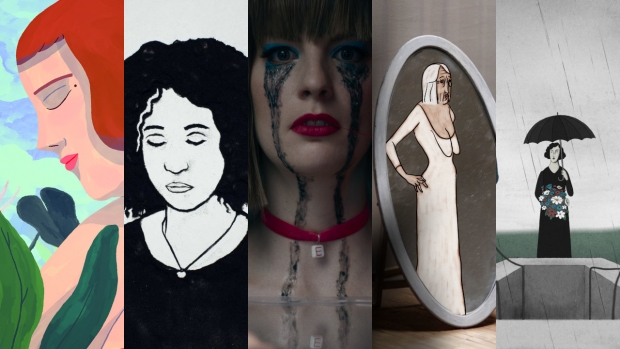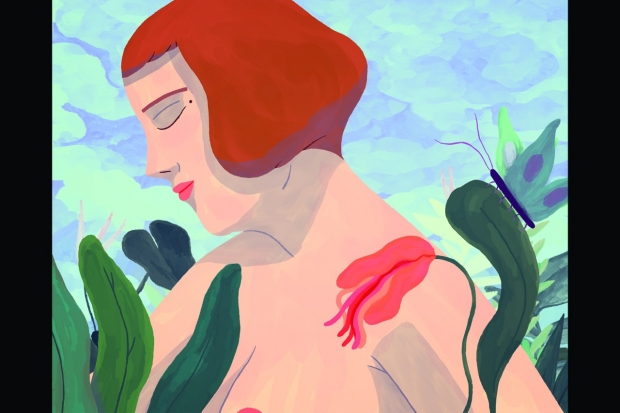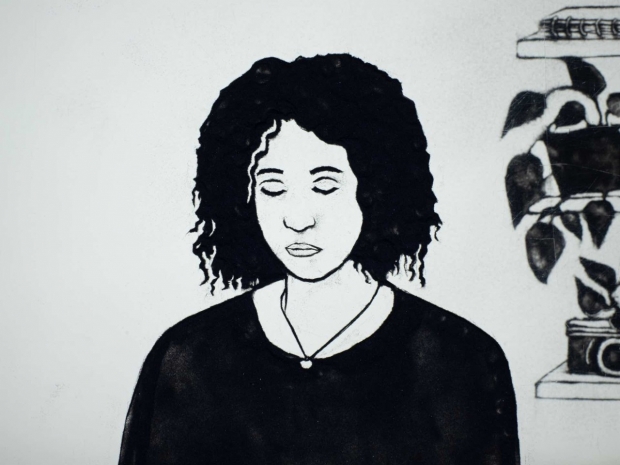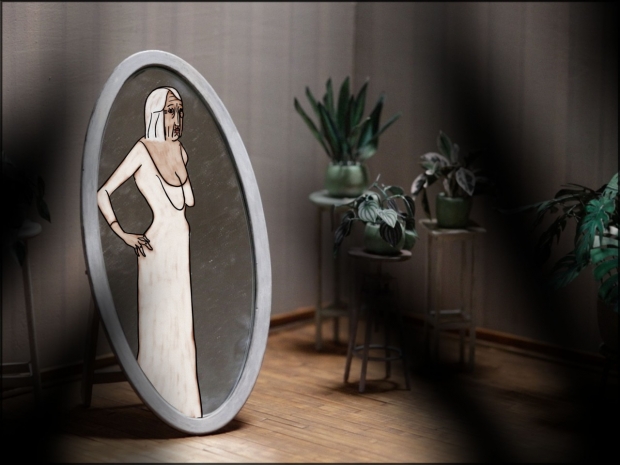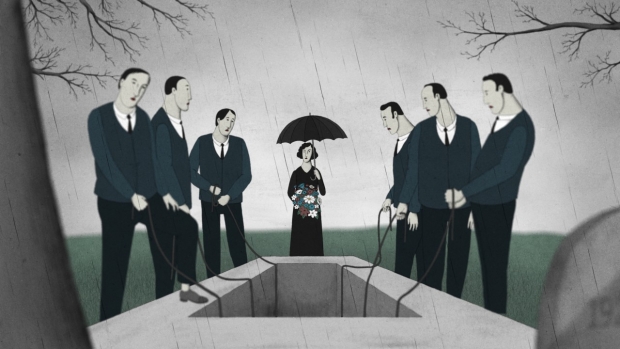Ottawa Animation Festival artistic director Chris Robinson takes a look at 5 intriguing short films competing at this year’s Annecy International Animation Festival, which runs June 11-17.
Alright, with Annecy 2023 just around the corner (running June 11-17), let’s check out five of the 37 selected competition short films (we just don’t have the space to explore the student, commissioned and TV comps) that might well give you a soul-tingle or two. And, be sure to check out some other stellar titles that are in year 2 of their festival run that we’ve already previewed in past columns: Dog Apartment (Priit Tender), and 11 (Vuk Jevremovic). Inés Sedan’s Love Me True is an innovative look at the challenges of online dating and screen addiction. There are also anticipated new works from John Musker, Franck Dion, Georges Schwizgebel, Stephen Irwin, Richard Reeves, etc.
27, Flóra Anna Buda, Hungary/France
A young woman named, fittingly, Alice, wakes up in a bush, bloodied from a bike crash. The police spot her. To avoid being arrested she proposes a threesome. Ah… but turns out she’s imagining all this during a masturbatory moment in her bedroom.
Alice is feckless and it seems really horny (she’s often lost in sexual scenarios that never expand into reality). She’s turning 27, still lives with her parents and still likes to party to the extreme. Even her little brother thinks she’s a loser. On the evening of her birthday, Alice heads out, gets shitfaced and crashes her bike. Is this the moment she will wake up and confront the bumpy road of adulthood or just a temporary repose until the hangover fades, the bruises heal and the Dionysian thirst returns?
Skirting between the dark and light, the sensual and raw, and dream and reality, 27 shows us a conflicted woman, often lost in fantasies, unable to embrace the challenges of adulthood.
Yet, this isn’t about one woman. Alice’s struggles are common with more and more kids continuing to live with their parents well into their adult years. Though Buda seems to be dealing with a specific Hungarian context, the pandemic, inflation, war, and insane housing prices have made it all the more challenging for young people to find solid ground in today’s society.
Buda, refreshingly, offers no answers, cause, well, there isn’t any clear and easy answer to the anxiety-inducing issues facing young, old and everyone in between.
Box Cutters, Naomi van Niekerk, France/Netherlands/South Africa
Naomi van Niekerk’s latest film brought to mind Dennis Tupicoff’s masterful, Her Mother’s Voice in the sense that it tackles an act of violence in a somewhat unconventional, yet powerful, way. While Tupicoff’s film dealt with a mother recalling the shooting death of her son, Box Cutters is about a young woman being violently assaulted on the street by three men. It is also a none-too-subtle social commentary on a broken society that has seen and experienced so much shit that it has become desensitized, almost nonchalant.
Armed with her distinctive black and white sand animation with its metamorphic shifts (which nicely capture the erratic nature of time and memory), van Niekerk creates a tense work that shows a world that is anything but black and white. What’s fascinating here is that we don’t see the actual assault. We see snippets of objects and hear fragments of recollection from the woman, but the focus seems to be on the before and, especially, after. How does one move forward from a violent assault, especially when faced with cold, seemingly uncaring reactions from passersby and family members that are as equally traumatic as the attack itself?
Electra, Daria Kashcheeva, Czech Republic/France
To find paradise you first have to go through Hell with a pitstop later, if you’re lucky, in Purgatory. To move forward, to find a semblance of peace and genuine self, often requires a deep painful dive into the labyrinth of memory. Only memory is unreliable. As Paul Auster once wrote, “Memory is the space in which a thing happens for a second time.” In other words, memories are a borderless meeting place of truth, lie, and fantasy.
Electra’s attempts to recall her 10th birthday generate a clash between imagination and suppressed sensual fantasies. As Electra dives deeper, the lines between past and present, reality and fantasy, collapse. Kashcheeva’s (Daughter, 2019) inspired collision of live-action (multiple actresses play Electra) and stop-motion (notably the use of dolls) magnificently mirrors Electra’s discombobulated mental and emotional state.
With hints of Svankmaker, Borges and a dash of Bunuel, Electra is a visual and conceptual powerhouse that explores memories, generational conflict, identity, mental health, physical abuse, and dormant desires and fears.
Her Dress for the Final, Martina Meštrović, Croatia
As a clock ticks in the background, a fragile elderly woman awakens and goes about her daily routines. At one moment she returns to her room and pulls out a white wedding dress. The dress carries her back to a happier, livelier space. She allows herself to briefly journey back to that time before returning to the stark reality of the here and now. After briefly tuning into a basketball game (the finals, one might assume, given the English title of the film), the woman decides to dye her wedding dress black so that it’s ready for her funeral.
Combining stop–motion and drawing gives Her Dress for the Final a strange, dreamy duality that seats us on that that hazy border between reality and death, life and nothingness. Mestrovic creates a low-key atmosphere that sticks to the basics, avoiding noisy visual distractions or over-the-top sound. The mood is almost in the vein of Roy Andersson: a no-fuss acceptance of a reality view of us we seem willing to accept as a part of the deal: mortality.
Eeva, Morten Tšinakov, Lucija Mrzljak, Estonia/Croatia
Speaking of death, the latest from the award-winning Estonian duo (The Stork, Demonstration of Brilliance in Four Acts) opens at a funeral. It’s a perfectly miserable rainy day. A woman and a quartet of everymen head out for a post-funeral reception at a restaurant. Booze flows. Music plays. Tables are turned. Glasses are smashed. Woodpeckers appear. Fish get drunk. Nervous breakdowns ensue.
Funny, confounding, and heartbreaking, Eeva is a freewheeling trip through the incomprehensibility, impossibility, and utter absurdity of grief and loss.
